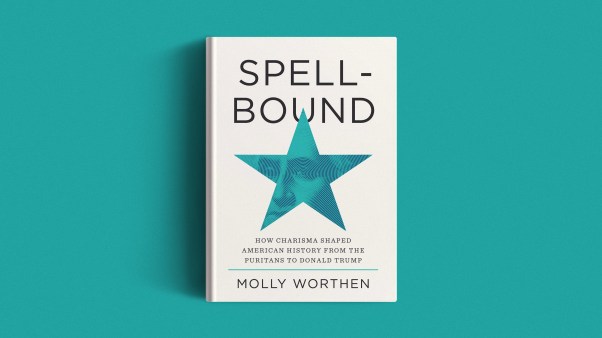The Lord of the Rings: The Fellowship of the Ring ruled the box office so impressively, moviegoers can count on Tolkien-mania returning in force next Christmas, when the film’s sequel—The Two Towers—opens. (The Return of the King will wrap up the trilogy the following Christmas.) The first film in Peter Jackson’s riveting big screen adaptation continues to draw more raves than any movie since Titanic. A lot of these reviews have been mentioned in Film Forum over the last three weeks (1, 2, 3), so let’s focus on newer releases this week.
Five new films opening or already playing across the country this week focus on men trying to make something better of themselves. One is a morally reprehensible man who tries to improve himself to save his family … or at least, he pretends to. Another constructs a meaningful, useful identity for himself, because he cannot remember who he is. The third tries to better himself in spite of a difficult mental disorder. Tired of being seen as weak, the fourth strives to be stronger and more self-assured. And number five? He’ll conquer the world with boxing gloves on.
* * *
The Royal Tenenbaums is the latest comedy from up-and-comer Wes Anderson (Rushmore, Bottle Rocket). It features a large, talented ensemble cast, spectacular sets, and a cast of characters as varied and strange as the Addams Family. Tenenbaums follows the sad disintegration of the Tenenbaum family, and one man’s efforts to bring them back together again, for one reason or another. When Royal Tenenbaum (Gene Hackman) divorces his wife (Angelica Huston) and leaves her with their three genius children, mother and kids spend the rest of their meandering lives limping from the damage. A father’s love is crucial, and devastating when it’s gone. Rarely have the effects of paternal neglect been so cleverly portrayed; each Tenenbaum child staggers off into extreme behavior. Ricky (Luke Wilson) gives up tennis and launches into a life of loneliness at sea. Helen (Gwyneth Paltrow) plunges headlong through reckless love affairs and depression. Chas (Ben Stiller) tries ruthlessly to control his shattered existence, especially after the death of his own spouse. When Royal arrives and announces that he’s dying, he realizes it’s going to take a lot more than a sob story to bring the family together again.
Wes Anderson has here, in my opinion, the year’s most brilliant comedy, one that tackles the painful politics of divorce and abandoned children with surprising conviction. The comedy is subtle, swift, brave, and hilarious. Each member of the cast is in top form. This is Paltrow’s best performance in years and Hackman demonstrates again that he’s a far more interesting comic actor than his usual tough-guy roles suggest.
Even as it jars the funny bone, it can break the heart. Royal can’t just come home and pick up where he left off. The damage he has done is too great. He has to start over, earn trust, and build healthy relationships. But are his intentions honest? Nevertheless, I came away deeply impressed at how the smallest loving gesture, whether it is sincere or not, can begin a chain reaction of goodness and honesty in the midst of wreckage.
Other critics in the religious press are similarly impressed. The U.S.C.C.’s critic says, “With comic compassion, Anderson depicts gradual maturing in a madly dysfunctional family.”
Phil Boatwright (The Movie Reporter) says Tenenbaums “may be the best film I’ve seen so far this year. Despite its objectionable material … it teaches the need for family and forgiveness, and gives a brilliant portrait of a man seeking atonement. There is a depth behind the twisted humor and much poignancy in the subtle drama.”
J. Robert Parks (The Phantom Tollbooth) says the director “wants to explore how our families both make us who we are and also limit what we can become. Anderson’s style … has a maturity and sophistication that belie his years.” He praises “the fabulous soundtrack” and concludes that this is “the funniest movie of the year. It’s as dry as a frigid January night and often wickedly subtle … and Anderson and his cast have fantastic timing. Hopefully, Gene Hackman will be honored with some kind of Oscar nomination.”
While Parks, Boatwright, and I were laughing out loud, Lisa Rice (Movieguide) found the movie “really not that funny.” She writes it off as a “wasted, lame attempt at dark humor”, and she is bothered by “several strange camera moves.” The soundtrack, which features the Beatles, Bob Dylan, and other popular favorites, is, according to Rice, “only semi-irritating.” Describing Royal’s sins, she concludes that this particular sinner is just too far gone: “Gene Hackman’s character is so miserable as a human being that you never like him and you never root for him. You have to like the protagonist a little bit to have a good movie!”
I guess whether you enjoy the movie or not depends on whether you can pity Royal for his blindness and foolishness, or if you can see his virtues — humor, spontaneity, resourcefulness, optimism, and determination. James Bowman, critic for The American Spectator, highlights Royal’s transformation as “a … redemption that is enhanced, I think, by all the seemingly irrelevant craziness going on around him.”
Mainstream critics, meanwhile, are singing the film’s praises: “It’s intellectual lunacy of splendid order, creating an entire world that’s simultaneously recognizable and tantalizingly new, and an entire family of people both ridiculously improbable and heartbreakingly real,” says MaryAnn Johanson (The Flick Filosopher)
And Roger Ebert (The Chicago Sun-Times) writes, “There are big laughs, and then quiet moments when we’re touched. Sometimes we grin at the movie’s deadpan audacity. [The movie] is at heart profoundly silly, and loving.”
* * *
In The Majestic, Jim Carrey plays Peter, an amnesiac who wanders into a small town where the locals, including a bereaved father (Martin Landau) and a beautiful blonde (Laurie Holden), think he’s a long lost war-hero come home. The film is another Oscar hopeful from director Frank Darabont (The Green Mile, The Shawshank Redemption). Some critics are smiling at its Capra-esque spirit, while others have condemned it as cheap sentimentality.
The U.S.C.C.’s critic writes, “While reminding viewers of the difference one life can make … Darabont’s nostalgic take on early 1950s America leisurely develops the narrative before falling into familiar sentimentality.”
Bob Smithouser (Focus on the Family) calls it “an entertaining slice of Americana that makes you think about all kinds of issues. I really enjoyed meeting characters I’d want as next-door neighbors. People to care about. People to root for. That’s a rare thing on the big screen. There’s a renewed sense of patriotism in the United States right now, and The Majestic will no doubt warm the hearts of audiences longing to recall a simpler time.”
Paul Bicking (The Dove Foundation) writes, “Although it rides an emotional rollercoaster, audiences will cheer this inspiring and patriotic story. Major themes of rekindled hope, restoring broken lives and reminders of American ideals shine through this refreshingly wholesome film.”
“The major success of The Majestic is Darabont’s ability to present such a reverent, nostalgic look at an earlier, more innocent age,” writes Michael Elliott (Movie Parables). “It raises a number of poignant questions. Namely, when is mere survival not enough? At what point do our convictions and beliefs override the danger of personal risk?”
Douglas Downs (Christian Spotlight on the Movies) raves, “Without a doubt—this is the best film of 2001. I hope it’s successful and Hollywood would be motivated to make more just like it. This film succeeds in the nostalgia department … It is an almost perfect Capra-esque fable. Darabont directs a film that you could take your grandparents to and not be ashamed.”
In spite of these praiseworthy remarks from most conservative critics, Dr. Ted Baehr (Movieguide) resorts to name-calling, referring to those who find insight in the movie as “mush-headed and emotionally and spiritually confused liberals.” Baehr, supporter of Christian-evangelism films like Left Behind, criticizes The Majestic because it “preaches too much to be entertaining. It is very tendentious and didactic.” He suggests re-titling the film “Communist Nostalgia,” and condemns it because it was produced by Castle Rock, “a company run by the anti-Christian Rob Reiner, one of the biggest backers in Tinsel Town of the Clintons.” He also claims that Jim Carrey has been “seduced by the Hollywood left, but then, again, Carrey does hail from Canada, which is even more socialist than the United States has become.”
Voicing more moderate criticisms, Peter T. Chattaway (Books and Culture) comments at The Film Forum‘s discussion list that the movie “not only rubs in the sap but also trots out that old Hollywood grudge against Joe McCarthy and the 1950s blacklists. I can’t say I care for anything that represses freedom of speech or association myself, but the way Hollywood movies treat this subject, you’d think Communism did not pose any sort of threat during the Cold War.”
Phil Boatwright (The Movie Reporter) argues, “The film pays tribute to those who died defending our country. But it also basks in its snide attack on the country’s fear of communism just after World War II. It’s so easy for us to ridicule this fear … as we now see that communism will ultimately defeat itself. But it was difficult for many back then to ignore the unknown.”
Mainstream critics are similarly split over the film. Roger Ebert calls it “a proud patriotic hymn to America.” But Kenneth Turan writes in The Los Angeles Times, “The Majestic isn’t. Rather, it’s The Film That Wasn’t There, a derivative, self-satisfied fable that couldn’t be more treacly and simple-minded if it tried.”
* * *
A Beautiful Mind is the latest drama from director Ron Howard (Apollo 13, Dr. Seuss’s How the Grinch Stole Christmas). It is based on the life of John Nash, a brilliant mathematician whose groundbreaking work was hindered by a mental disorder that led to confusion and paranoia.
J. Robert Parks praises the film’s star, last year’s Oscar-winner Russell Crowe: “Crowe conveys every facet of John Nash’s personality with clarity and feeling. It’s an intense and personal portrayal. Matching Crowe scene for scene is Jennifer Connelly … her steely-eyed performance and classic-Hollywood good looks are a strong addition.” He notes that the film has “a well-told story and two strong performances. The ending is unfortunately far too Hollywood (a nauseating speech about love is followed by a standing ovation—yuck!), but I was happy to blame that, like John Nash might have, on faceless operatives.”
But for Michael Elliott, the protagonist made the film a hard sell: “Director Howard never gets the pacing of the film beyond a slow trot. Nash may be a fascinating character and his story may indeed be interesting … but, as filmed, it simply isn’t compelling enough to arrest our attention.”
Mary Draughon (Preview) comments, “John’s tormented delusions are disturbing, but the audience never loses sight of his gentle nature, dry wit and brilliant mind. This story of courage, love and strength, as Alicia helps John learn to distinguish reality from illusion, helps us all better understand mental illness.”
Mainstream press critics offer widely differing opinions of the film and Crowe’s performance. MaryAnn Johanson (The Flick Filosopher) writes, “My major quibble with Howard’s direction is that the script gets us so inside Nash’s head that it makes us a party to his illness and the paranoia that it spawns … but Howard doesn’t know how to show us this without, ultimately, making us feel cheated and jerked around. Crowe does, finally, make A Beautiful Mind worth seeing. But maybe only for Crowe fans.”
But Charles Taylor (Salon.com) disagrees, calling Crowe’s performance “possibly the biggest load of hooey to stink up the screen this year. Beautiful Mind is a typical example of Hollywood’s chickening out on chancy material, softening the edges of a story and characters, and shoehorning things into a tidy inspirational package. It’s John Nash’s life, being turned into an Oscar machine and an easy way to jerk tears.”
* * *
According to critics, Will Smith delivers a career-high performance as Ali, the world’s most famous boxing champion. Unfortunately, though, most are saying director Michael Mann has messed up a potentially powerful film.
Ted Baehr (Movieguide) calls Ali “one of the most tedious, boring, poorly edited examples of filmmaking in a long time.”
Michael Elliott writes, “It isn’t clear whether it was because the material overwhelmed the time allotted to tell the story, or if Mann chose to deliberately keep the focus on Ali’s individualism by suppressing the importance that other personalities may have had upon him. Whatever the reason, the result is that this is Will Smith’s picture from beginning to end … all two and one-half hours of it and it proves to be simply too much for one man to carry.”
J. Robert Parks argues that Smith’s “exhilarating” performance isn’t enough: “All of the acting and direction can’t overcome a project whose very conception is flawed, a movie that doesn’t know what it wants to do and ends up doing nothing. I’m sure that Mann was hoping to capture some element of the ‘real’ Ali, but his effect is to get the audience wondering when the next fight’s going to be.”
John Adair (Preview) disqualifies the film for portraying characters that use foul language, and for a “graphic sex scene”.
Mainstream critics are also disappointed. Roger Ebert calls it “a long, flat, curiously muted film. It feels like an unfinished rough cut that might play better after editing.”
And David Denby (The New Yorker) writes, “Despite the movie’s many excellences, and its great good humor, I couldn’t help feeling that the entire enterprise had been hampered by a fatal lack of purpose and dramatic shape. Ali doesn’t tell us anything new about its hero, and watching it feels at times like an exercise in historical piety.”
* * *
In Joe Somebody, Tim Allen (Galaxy Quest) plays an ordinary office worker named Joe Scheffer who has suffered a humiliating divorce and can’t get promoted no matter how hard he tries. One particularly insulting confrontation in the workplace pushes Joe too far, and he decides it’s time to take charge of the situation and demand the respect he deserves.
J. Robert Parks had a good time. “What a pleasant surprise this is. The commercials make Joe Somebody look like another awful romantic comedy, with little romance and even less comedy, but instead it’s an enjoyable romp that avoids the ridiculous for the surprisingly understated.”
Phil Boatwright says, “The humor in the opening scenes seemed a bit heavy-handed, but suddenly the story came to life. I expect it is a universal feeling that often we are unnoticed and unappreciated. The film reminds us that we’re not alone in this frustration. It also examines what’s really going on inside when we are bullied by someone. The film has charm, some funny moments and, surprisingly, a great deal of heart.”
Michael Elliott calls it “a simple, almost old-fashioned family film extolling how virtue and moral behavior can triumph over less noble human instincts. The film makes the point that whenever we give into that which we fear, we are not being faithful to our true selves.”
Less impressed, the U.S.C.C.‘s critic calls it a “junky comedy. With hardly a chuckle, director John Pasquin’s torpid film ineffectually conveys the message that an eye for an eye is not right, but not before turning the lead character into a hero for deciding to avenge the local bully.”
Tom Snyder (Movieguide) says it’s “an often funny comedy that shows off Tim Allen’s ability to play physical comedy.” Snyder claims that the film contradicts its own moral: “Although the movie recognizes that Joe is going about things in a bad way, the intent of the story also seems to be to awaken feelings of revenge in viewers. Furthermore, the violence in the story is used for comical effect, to elicit laughter from other people’s pain. In the end, however, viewers just want to see the bad guys get their comeuppance.”
Steven Isaac (Focus on the Family) writes, “To fight, or not to fight. That is the question. Great fodder for discussion here regarding settling differences with physical violence.” But the film ultimately disappointed him: “Endearing scenes between Joe and his daughter reeled me in early on. And I thought those moments were going to lead to something. But I was disappointed when the thread of their relationship was lost in a pursuit of laughs—some of them cheap, and none of them grand.”
* * *
A small boy has all of these guys beat when it comes to gaining good marks from the religious press.Jimmy Neutron: Boy Genius, although it’s not boasting innovations in animation as most animated movies do these days, seems to have a strong enough story and enough whimsical imagination to win the critics over. Director John Davis’s film is an outrageous adventure aimed at young children, following the adventures of a brilliant young boy who leads a neighborhood of kids in a quest to rescue their parents from alien kidnappers.
Jesse Florea (Focus on the Family) calls it “a slick-looking, action-packed adventure with plenty of laughs for kids and parents—and who could ask for a better theme than a child’s need for Mommy and Daddy?”
Douglas Downs is impressed with what the film doesn’t do: “What the film lacks in quality, it does make up ground in spirit. John Davis does a great job of not assaulting our youth with offensive material. If you’ve got the time, consider sending a note of thanks to Nickelodeon for making a film that does not have ‘in-jokes’ and excessive flatulence.”
Ted Baehr says Jimmy Neutron “is smart, funny, exciting, entertaining, and full of great moral messages that will have audiences cheering.”
John Evans (Preview) promises that the film “will undoubtedly thrill and fascinate kids. The theme of children finding out the importance of their parents’ love and concern is very encouraging and uplifting.”
Michael Elliott says, “It may seem like too obvious a message to mention, but in our world where so many media influences are driving our kids to desire independence and zero parent involvement in their life choices, it is somewhat refreshing to have a film, even a cartoon, build its story around a child’s recognition that he needs his parents.”
The U.S.C.C.‘s critic says the film is “chock full of whimsical gadgets and high-flying adventures with a few lightweight but well-intended lessons for younger viewers.”
Phil Boatwright isn’t quite so enthusiastic as the rest: “I think this one may be of interest to tiny tots, but most adults will find the humor marginal at best.”
Even the world’s most popular critic, Roger Ebert, had a good time: “It doesn’t have the little in-jokes that make Shrek and Monsters, Inc. fun for grown-ups. But adults who appreciate the art of animation may enjoy the look of the picture … a kind downsized Toy Story.“
In two weeks: We’ll catch up with other end-of-the-year movies playing everywhere, including Kate and Leopold, Lantana, and The Shipping News.
Related Elsewhere:
More review roundups are available in the Film Forum archives.








